Introduction to Off-Page SEO and its Importance
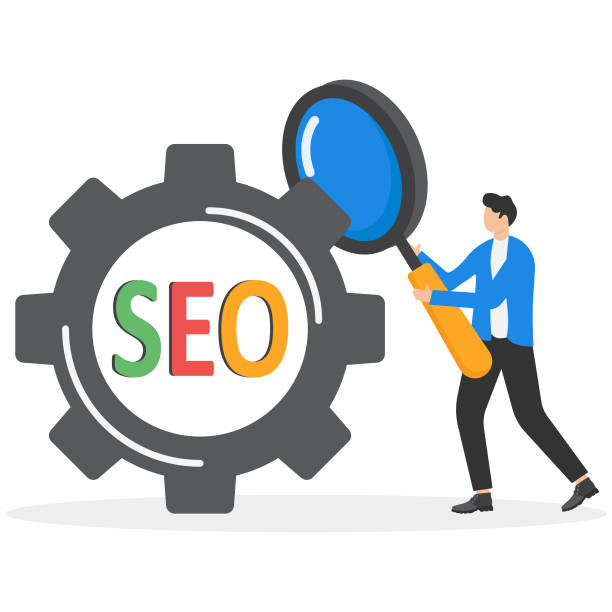
#Off-Page_SEO, also known as #Off-Site_Optimization, is a set of actions performed outside of your website to improve its ranking in search engine results.
These actions include activities such as link building (backlinks), social signals, and references from other websites to your content.
The importance of off-page SEO lies in the fact that search engines, especially Google, evaluate your website based on the level of credibility and trust other sites place in it.
The more high-quality and numerous links from reputable sites point to your website, the more credibility Google will give you, and you will likely achieve a higher ranking in search results.
In fact, off-page SEO means gaining a “vote of confidence“ from the internet.
This vote of confidence not only helps improve ranking but also increases referral traffic and strengthens your branding.
A powerful strategy in the field of off-page SEO requires a precise understanding of Google’s algorithms and a focus on producing valuable content so that others are inclined to link to it.
Without strong off-page SEO, even the best content and on-page optimizations may not be able to reach the desired position.
For this reason, a deep understanding of this concept is vital for every webmaster.
This explanatory and educational section gives you an overview of off-page SEO.
Is your company’s website as professional and trustworthy as it should be? With specialized corporate website design by Rasavab, create an online presence that reflects your credibility and attracts more customers.
✅ Create a powerful and professional image for your brand
✅ Convert visitors into real customers
⚡ Get a free consultation now!
Difference Between Off-Page SEO and On-Page SEO

Understanding the distinction between on-page SEO and off-page SEO is essential for developing a comprehensive search engine optimization strategy.
#On-page_SEO includes all actions performed within your website to improve its ranking.
These include keyword optimization, URL structure, page loading speed, image optimization, title tags and meta descriptions, content structure, and internal linking.
The goal of on-page SEO is to make your website technically and content-wise understandable and user-friendly for search engines.
In contrast, #Off-page_SEO refers to activities performed outside your website’s domain to increase its credibility and trust.
The most important and impactful component of off-page SEO, as will be detailed in the next section, is link building or backlinks.
Although social networks and brand mentions without links can also fall into this category.
On-page SEO tells search engines what your website is about, while off-page SEO shows how trustworthy and reputable your website is.
Both sections complement each other; a website with excellent content and flawless on-page optimization, without external credibility, may lose in competition with stronger sites.
Similarly, numerous backlinks to a low-quality or irrelevant website will not have a lasting effect and can even be detrimental.
Therefore, a successful SEO strategy requires a balanced and synergistic approach to both aspects.
This analytical difference is very important.
Link Building (Backlinks): The Backbone of Off-Page SEO
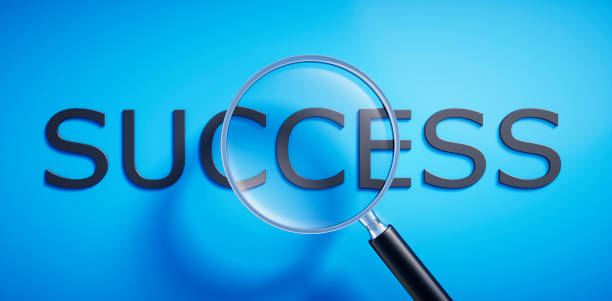
#Link_building or acquiring #backlinks is the core of any successful #off-page_SEO strategy.
A backlink means a link from one website to your website.
Search engines consider these links as a “vote of confidence“ or “reference“ from one site to another.
The greater the number and quality of these backlinks, the higher your website’s credibility (Domain Authority) will be in Google’s eyes.
The quality of links is far more important than their quantity.
One backlink from a high-authority website relevant to your business area is worth much more than dozens of backlinks from low-authority or irrelevant sites.
Google’s PageRank algorithm, initially developed by Larry Page and Sergey Brin, was built upon this very concept of links and their credibility.
Below, a table is provided to illustrate different types of backlinks and their applications.
This table is a specialized guide for a better understanding of link building:
| Type of Backlink | Description | Example and Application |
|---|---|---|
| Editorial Links | Links naturally placed within the content of an article or blog post. | A blogger writes about your article and links to it. Highly valuable. |
| Guest Posting | You write content for another website and receive a link back to your site in return. | Writing an article about “The Importance of Off-Page SEO“ for a relevant blog and receiving a link. |
| Directory Submissions | Submitting a website to online directories (e.g., Yellow Pages). | Listing a business in local and industry directories. Variable quality. |
| Forum Links | Placing links in forum signatures or posts. | Participating in relevant discussions and adding links as useful resources (with caution). |
| Broken Link Building | Finding broken links on other sites and suggesting your content as a replacement. | Finding a broken link in a relevant article and suggesting your article as a replacement. |
There are various link-building strategies, each with its own advantages and disadvantages.
The most important principle in any link-building strategy is the naturalness and quality of the links.
Focusing on creating links that are acquired naturally and organically due to the quality of your content yields the best and most sustainable results in off-page SEO.
Types of Backlinks and Their Strategies
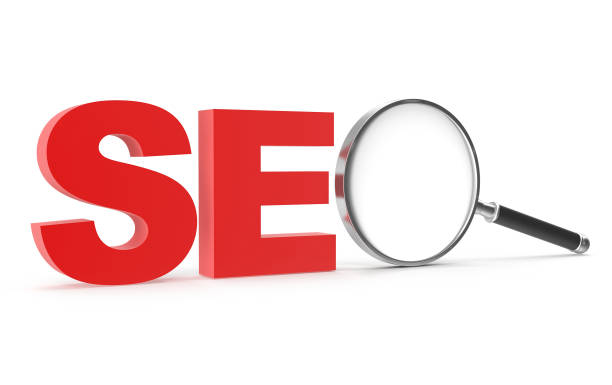
After understanding the importance of backlinks in #off-page_SEO, we now delve into a more detailed examination of backlink types and effective strategies for acquiring them.
As mentioned, not all backlinks are equal and they have different values.
The most important distinction between links is whether they are “Dofollow“ or “Nofollow“.
Dofollow links transfer credibility (Link Juice) from the source site to the destination site and directly impact ranking and domain authority.
In contrast, Nofollow links (such as those from social networks or blog comment sections) tell search engines not to pass authority, but they can still bring referral traffic and be indirectly beneficial in off-page SEO.
Popular strategies for acquiring backlinks include the following:
- Producing High-Quality, Linkable Assets: Write exceptional content that naturally has linking value.
This can include infographics, original research, free tools, in-depth articles, and comprehensive guides.
When your content is truly useful, other websites will be more inclined to link to it. - Guest Posting: As previously mentioned, writing content for other blogs and websites in your business’s relevant field is an excellent opportunity to acquire dofollow and relevant backlinks.
This method helps you both increase your authority and reach new audiences. - Content Promotion: After producing content, actively promote it on social networks, relevant forums, and through email marketing.
The more visibility your content gets, the higher the chance it will be linked to by others. - Using Broken Link Building Technique: Find broken links on high-authority websites and suggest your relevant content as a replacement.
This is a great way to help other webmasters while acquiring high-quality backlinks. - Competitor Backlink Analysis: Analyzing your competitors’ backlinks can uncover new link-building opportunities.
SEO tools can show you where your competitors are getting links from, and you can try to acquire links from the same sources.
Every strategy should align with the ultimate goal of off-page SEO, which is to increase website credibility and natural visibility.
Strictly avoid buying links or using link farms, which can lead to Google penalties.
Tired of your company’s website not being seen as it should be, and losing potential customers? Solve this problem forever with professional and effective website design by Rasavab!
✅ Increase brand credibility and gain customer trust
✅ Attract targeted sales leads
⚡ Contact us now for a free consultation!
Off-Page SEO Analysis Tools

To implement an effective #off-page_SEO strategy and monitor its progress, using specialized tools is essential.
These tools allow you to analyze your and your competitors’ backlinks, identify new link-building opportunities, and prevent a toxic link profile.
Familiarity with these tools and how to use them is specialized knowledge and a practical guide for any SEO professional.
Some of the most important off-page SEO analysis tools include:
- Ahrefs: Is one of the most powerful and popular SEO tools in the world.
Ahrefs has a massive backlink database and allows you to thoroughly examine any website’s backlink profile.
Its key features include Backlink Audit, Competitor Backlinks analysis, and Link Intersect for discovering link-building opportunities.
This tool is an essential investment for anyone serious about off-page SEO. - SEMrush: Is a comprehensive tool that, in addition to backlink analysis, offers extensive capabilities in keyword research, competitor analysis, and on-page SEO.
SEMrush helps you monitor your backlinks, identify the strengths and weaknesses of your link profile, and plan effective link-building strategies. - Moz Link Explorer: Is part of the Moz toolset that analyzes backlinks and measures Domain Authority (DA) and Page Authority (PA).
This tool is very useful for measuring the domain authority of your website and the sites from which you intend to acquire links. - Majestic SEO: This tool primarily focuses on backlink analysis and provides two important metrics: Citation Flow and Trust Flow.
Citation Flow is measured based on the number of links, and Trust Flow is measured based on the quality of links, giving you a good insight into the quality of your link profile. - Google Search Console: This free Google tool provides important information about incoming backlinks to your site.
Although not as comprehensive as paid tools, it is very useful for monitoring primary backlinks and identifying suspicious links.
Proper use of these tools allows you to build your #off-page_SEO strategy based on accurate data and information, and continuously monitor its effectiveness.
The Role of Social Signals in Off-Page SEO
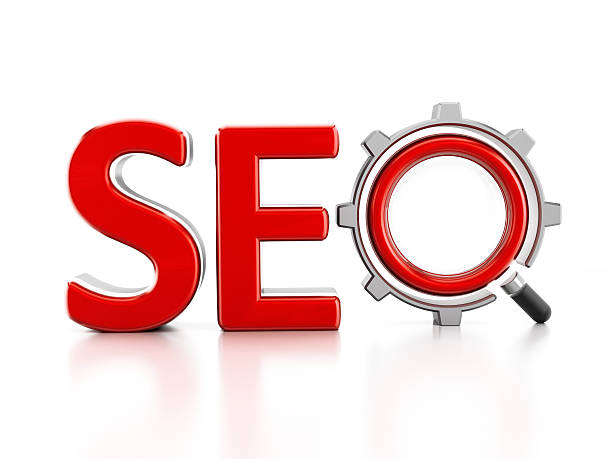
In the discussion of #off-page_SEO, the primary focus is usually on backlinks, but the role of Social Signals should not be underestimated.
Social signals refer to likes, shares, comments, and the level of user engagement with your content on social networks such as Facebook, Twitter, LinkedIn, Instagram, and Pinterest.
This is an analytical and explanatory topic whose importance is growing day by day.
Although Google has not directly stated that social signals are a direct ranking factor, their indirect impact on off-page SEO is undeniable.
The reasons for this impact are as follows:
- Increased Content Visibility: The more your content is shared on social networks, the more people will see it.
This increased visibility can lead to a direct increase in traffic to your website. - Increased Link-Building Opportunities: When your content goes viral on social networks, the probability of bloggers, journalists, or other webmasters seeing it and linking to it increases significantly.
These natural and high-quality links are vital for off-page SEO. - Brand Strengthening: Strong activity on social networks and increased engagement help strengthen your brand awareness.
A strong and recognized brand can ultimately lead to more direct searches for your brand name on Google, which itself is a positive signal for search engines. - Increased Time on Site: Engaging and shareable content on social networks brings users to your website.
If your content is truly good, users will spend more time on your site, and the bounce rate will decrease, which is also considered a positive signal for Google.
Therefore, to improve off-page SEO, one should not solely focus on backlinks.
A content marketing strategy and an active presence on social networks for content promotion and increasing social signals are also of special importance.
This approach helps you increase your overall online credibility and indirectly improve your website’s ranking.
Black Hat and White Hat Off-Page SEO
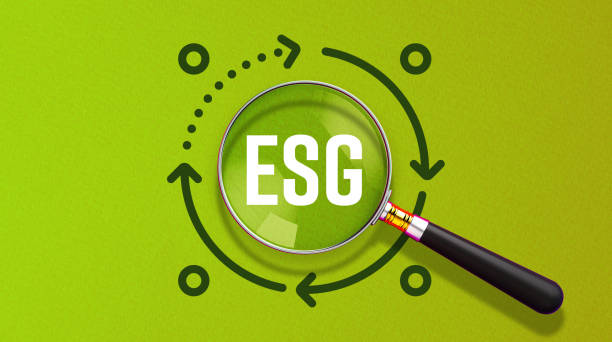
In the world of #off-page_SEO, distinguishing between “White Hat“ and “Black Hat“ approaches is crucial.
#White_Hat_SEO refers to a set of techniques that comply with search engine guidelines and aim to improve user experience and provide real value.
In contrast, #Black_Hat_SEO refers to unethical and deceptive methods aimed at tricking search engine algorithms to gain quick rankings.
This section contains thought-provoking and educational content.
Using Black Hat techniques might yield quick results in the short term, but in the long run, due to the high risk of being penalized by Google, it is extremely dangerous and can lead to the complete removal of your website from search results.
Below, a comparative table between White Hat and Black Hat off-page SEO methods is provided:
| Feature | White Hat SEO | Black Hat SEO |
|---|---|---|
| Main Goal | Increasing natural credibility and user experience | Deceiving algorithms for quick ranking |
| Link Building Methods | Creating excellent content, guest posting, broken link recovery | Link buying, link farms, spam links, PBN |
| Short-term Impact | Gradual and sustainable results | Quick but high-risk results |
| Long-term Impact | Ranking stability and increased credibility | Penalty risk, loss of ranking and traffic |
| Google’s View | Approved and encouraged | Illegitimate and leads to penalties |
The strong recommendation is to use White Hat SEO techniques.
The White Hat approach focuses on real value creation, which not only stabilizes your ranking but also leads to building a strong brand and gaining user trust.
Although this path requires more time and effort, its results will be reliable and sustainable, insuring your website against Google’s algorithmic changes.
Google Penalties and Off-Page SEO

One of the biggest risks in #off-page_SEO is encountering Google penalties.
#Google_penalty occurs when your website violates Google’s quality guidelines and policies.
These penalties can be applied manually (Manual Action), in which case Google explicitly informs you of the reason in Google Search Console, or they can be algorithmic (Algorithmic Penalty), applied by automatic Google algorithm updates such as Penguin.
This section is very important news and educational content.
The most common reasons for penalties related to off-page SEO include:
- Unnatural and Spam Links: This is the most common reason.
Buying and selling links, excessive link exchanges, using link farms, Private Blog Networks (PBNs), or any attempt to deliberately manipulate rankings through links can lead to a penalty. - Over-optimized Anchor Text Usage: If too many of your backlinks use a specific keyword as anchor text, Google may consider it unnatural and penalize it.
Diversity in anchor texts is very important. - Irrelevant Links: Receiving links from websites that have no relevance to your business area can send negative signals to Google.
Consequences of Penalty: Penalties can lead to a drastic decrease in keyword rankings, a significant drop in organic traffic, or even the complete removal of your website from search results.
Recovering from Google penalties, especially manual ones, can be a long and difficult process requiring the identification and removal or Disavowal of harmful links.
Prevention and Treatment: The best solution is prevention.
Always focus on building high-quality and natural links.
Use tools like Ahrefs or SEMrush to regularly check your backlink profile and identify toxic links.
If you encounter a penalty, first identify unnatural links and try to remove them.
If removal is not possible, use the Disavow Tool in Google Search Console to tell Google to ignore these links.
Ultimately, patience and persistence in implementing White Hat SEO strategies are the keys to sustained success in off-page SEO.
Did you know that 94% of a first impression of a company is related to its website design?
Rasavab, by offering professional corporate website design services, helps you create the best first impression.
✅ Create a professional and trustworthy image of your brand
✅ Easier attraction of potential customers and improvement of online presence
⚡ Get a free corporate website design consultation
Content Strategy and Off-Page SEO

At first glance, the direct connection between #content_strategy and #off-page_SEO might not be obvious, but the truth is that these two are inseparable.
A strong and targeted content strategy is the most important factor for attracting natural and high-quality backlinks, which itself is considered the backbone of off-page SEO.
This section provides guidance and specialized information.
High-quality and valuable content is the main driving force behind organic link building.
No webmaster wants to link to weak, repetitive, or worthless content.
But if your content:
- Is unique and original: Provides new research, data, or analyses not found elsewhere.
- Is in-depth and comprehensive: Covers a topic completely and answers all user questions.
- Is trustworthy and well-documented: Provides accurate and documented information and refers to reputable sources.
- Is shareable: In formats like infographics, videos, or case studies that can be easily shared on social networks.
- Is problem-solving: Addresses the needs and challenges of the audience and provides solutions.
In this case, the likelihood of other websites and blogs referring to your content as a credible source significantly increases.
These natural links are not only highly valuable to Google but also drive high-quality referral traffic to your site.
How Content Strategy Helps Off-Page SEO:
- Producing Linkable Assets: Create content that is naturally linkable.
This can be a free tool, a comprehensive study, a complete guide, or an exclusive report. - Utilizing Diverse Formats: Don’t limit yourself to text articles alone.
Infographics, videos, podcasts, and webinars can be widely shared and acquire links. - Content Promotion: After publication, actively promote your content on social networks, relevant forums, and through email marketing.
The more visibility your content gets, the higher the chances of attracting backlinks. - Branding: High-quality content helps build and strengthen your brand.
Strong and reputable brands naturally receive more links.
Ultimately, investing in producing excellent content is the best and most sustainable strategy for improving off-page SEO and achieving high rankings in search results.
The Future of Off-Page SEO and New Trends

The world of SEO is constantly changing and evolving, and #off-page_SEO is no exception.
Understanding new trends and predicting the future of this field is essential for maintaining competitiveness in the online space.
This analytical, news, and entertaining section examines these trends.
While backlinks will continue to be the backbone of off-page SEO, the quality and manner of acquiring them will become doubly important.
Google’s algorithms are becoming smarter and can easily detect artificial or low-value links.
Therefore, a greater focus on natural links and very high-quality content will become more vital than ever.
Key Trends in the Future of Off-Page SEO:
- Emphasis on E-E-A-T (Experience, Expertise, Authoritativeness, Trustworthiness): Google is increasingly focusing on E-E-A-T criteria to evaluate website credibility and quality.
This means that backlinks from reputable and expert sources in the relevant field will have significantly higher value.
Creating content that demonstrates your expertise and comes from trustworthy sources will be key to attracting these types of links. - More Prominent Role of Artificial Intelligence and Machine Learning: Google’s algorithms, including RankBrain and BERT, use AI to better understand content and user search intent.
This means that links should not only be topically relevant but also be placed in a natural and useful context to be considered positive by Google’s AI. - Increasing Importance of Brand Mentions and Named Entities: Beyond traditional backlinks, Google also values brand mentions (even without direct links) and the identification of Named Entities across the web.
This indicates a brand’s reputation and credibility and can indirectly impact off-page SEO rankings. - Digital PR Strategies: Off-page SEO is increasingly moving towards digital public relations.
This means creating content campaigns that attract the attention of major media outlets and websites, leading to news coverage and the acquisition of natural and powerful links. - Local SEO and Off-Page SEO: For local businesses, links from local directories, local news websites, and local business partners will gain special importance.
Ultimately, the future of off-page SEO relies on a comprehensive approach that emphasizes producing valuable and authoritative content, strong public relations, and natural and ethical online activities.
Merely chasing link numbers will not suffice; quality, relevance, and trust will be the main components of success in future off-page SEO.
Frequently Asked Questions
| Row | Question | Answer |
|---|---|---|
| 1 | What is Off-Page SEO? | Off-page SEO refers to a set of actions performed outside of your website to improve its ranking in search engines. These actions include backlink building, social media presence, branding, and so on. |
| 2 | Why is Off-Page SEO so important? | Off-page SEO shows search engines that your website is credible, popular, and trustworthy. High-quality backlinks from reputable sites are a strong signal for better ranking and help increase your domain authority. |
| 3 | What are the most important components of Off-Page SEO? | The most important components of off-page SEO include: Link Building, Content Marketing, Social Media Marketing, Influencer Marketing, and Online Reputation Management. |
| 4 | What is a backlink and why is it important for Off-Page SEO? | A backlink is a link from another website that points to your website. These links act as a “vote of confidence“ in Google’s eyes and indicate the credibility of your content. The more numerous and higher quality the backlinks, the better your site’s ranking will be. |
| 5 | What are the types of backlinks in terms of SEO impact? | The two main types of backlinks are DoFollow and NoFollow. DoFollow backlinks transfer authority (Link Juice) and directly impact ranking. NoFollows do not transfer authority but can still generate traffic and help make the link profile appear natural. (Also UGC and Sponsored) |
| 6 | How can quality backlinks be created for your site? | To build high-quality backlinks, one can use methods such as: producing excellent and shareable content, guest posting on relevant and reputable sites, broken link building, Digital PR, and competitor backlink analysis. |
| 7 | What are toxic backlinks and how do they affect a site? | Toxic or spam backlinks are links that point to your site from low-quality, spammy, or irrelevant websites. These backlinks can harm your site’s ranking and even lead to penalties by Google’s algorithms. |
| 8 | What is the role of social networks in Off-Page SEO? | Although social signals (likes, shares, etc.) are not direct ranking factors, they do help with off-page SEO. They increase content visibility, drive direct traffic to the site, and ultimately boost the chances of acquiring natural backlinks and improving brand recognition. |
| 9 | What is the importance of diversity in a backlink profile? | Diversity in a backlink profile means that your links come from various sources (blogs, forums, news sites, directories), with diverse anchor texts, and a mix of DoFollow and NoFollow links. This diversity signals to Google that your link building is natural and organic. |
| 10 | What are common mistakes in off-page SEO that should be avoided? | Common mistakes include: buying a large volume of low-quality backlinks, over-optimization with target keywords in link building, neglecting quality in favor of quantity in backlink building, lack of diversity in the link profile, and neglecting harmful backlinks and not disavowing them. |
And other services of Rasavab Advertising Agency in the field of advertising
Smart Google Ads: A dedicated service for growth in website traffic based on the use of real data.
Smart SEO: Transform online growth with the help of Google Ads management.
Smart Marketing Automation: Designed for businesses seeking user engagement through intelligent data analysis.
Smart Custom Software: A professional solution for customer acquisition focusing on an SEO-driven content strategy.
Smart Conversion Rate Optimization: An innovative platform for improving campaign management with Google Ads management.
And over hundreds of other services in the field of internet advertising, advertising consultation, and organizational solutions
Internet Advertising | Advertising Strategy | Advertorials
Sources
What is Off-Page SEO and how to do it?
What is Off-Page SEO and what is its use?
What is Off-Page SEO?
What is Off-Page SEO and ways to improve it
? For your business’s leap in the digital world, Rasavab Afarin Digital Marketing Agency offers innovative and targeted solutions with expertise in areas such as WordPress website design, SEO, and content marketing.
📍 Tehran, Mirdamad Street, next to Bank Markazi, Kazerun Jonubi Alley, Ramin Alley, No. 6



